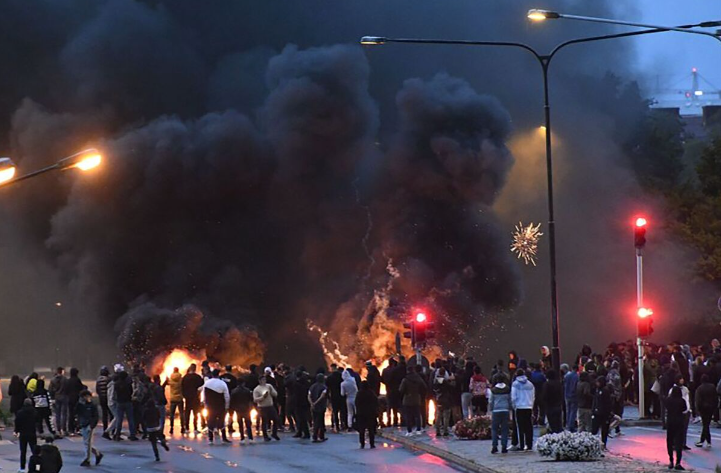
In Sweden, there is an ongoing debate on whether we should allow the burning of Qurans in public spaces. As a result, it has put the country in a real predicament: it has to walk a fine line between freedom of expression and ensuring the safety of its people. How can this situation act as a tool to understand the impact freedom of expression can have on a country?
Since Easter 2022, Rasmus Paludan, a Danish-Swede, has traveled to cities in Sweden to burn the Quran in public to express his views on Islam. In the following weeks, widespread media attention resulted in more people joining him. Even though many find the act ominous, some argue that it is their right to express their views. For instance, the second biggest political party in Sweden, the Swedish Democrats, agrees that it should be allowed and that Sweden as a whole should not adjust to the Islamic State’s values, where free expression is not allowed. This situation has made Sweden, and the rest of the world, aware of the importance freedom of speech holds in citizens minds.
Turkey’s President Tayyip Erdogan is still skeptical about Sweden joining the North Atlantic Treaty Organization (NATO), and he has used these events as an excuse to continue his line of questioning. This comes after he had agreed to further progress already made by NATO in ratifying Sweden into the transatlantic bond. Furthermore, protestors in Muslim-dominated countries like Iraq have raided the Swedish embassy in their country. Because of this, SÄPO, the equivalent of Sweden’s FBI, has recently recommended that people be alert of their surroundings when going out in public, citing threats of terrorist attacks.
This circumstance is complicated for Sweden. On one hand, it has to balance the freedom of expression that has been part of Swedish identity for centuries, but it also can not ignore the violence these issues promulgate. We need to understand that Sweden is in a fragile position. Organized gangs have spiraled out of control and the differences between the suburbs and the inner cities are so drastic that it has led to divisions within Swedish population. As a result of this, Sweden documented 62 deadly shootings in 2022, compared to Denmark’s four, Norway’s four and Finland’s two.
Sweden is facing popular anger. Inflation continues to cut into people’s income, and the face an environment where a lot of groups are turning against each other.
When describing Sweden’s crisis, it is clear to see how freedom of expression can affect a country. Even though I think we can all agree it is a necessity for a democratic country to function, it is still a topic that requires discussion. Clearly, when seeing the cycle Sweden has gone through, allowing individuals to have full freedom of expression can spark tensions between groups.
The cautionary tale that Sweden presents is that when allowing some people to pour fuel on the fire, things can get out of hand. When you allow people such as Rasmus Paludan to express and loathing for a fraction of your population in public, you can end up in a similar predicament. In the end, people like Paludan are angry at how things are in Sweden’s society. From a personal standpoint, I think freedom of expression should be used as a tool to criticize the people in power, the people who should be held responsible for why you might want to burn the Quran. However, what it should not be used for is for the expression of hate towards one another.
















